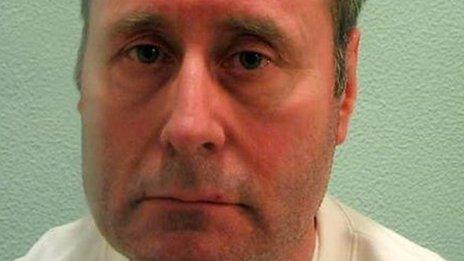Worboys review: What we have learned
- Published
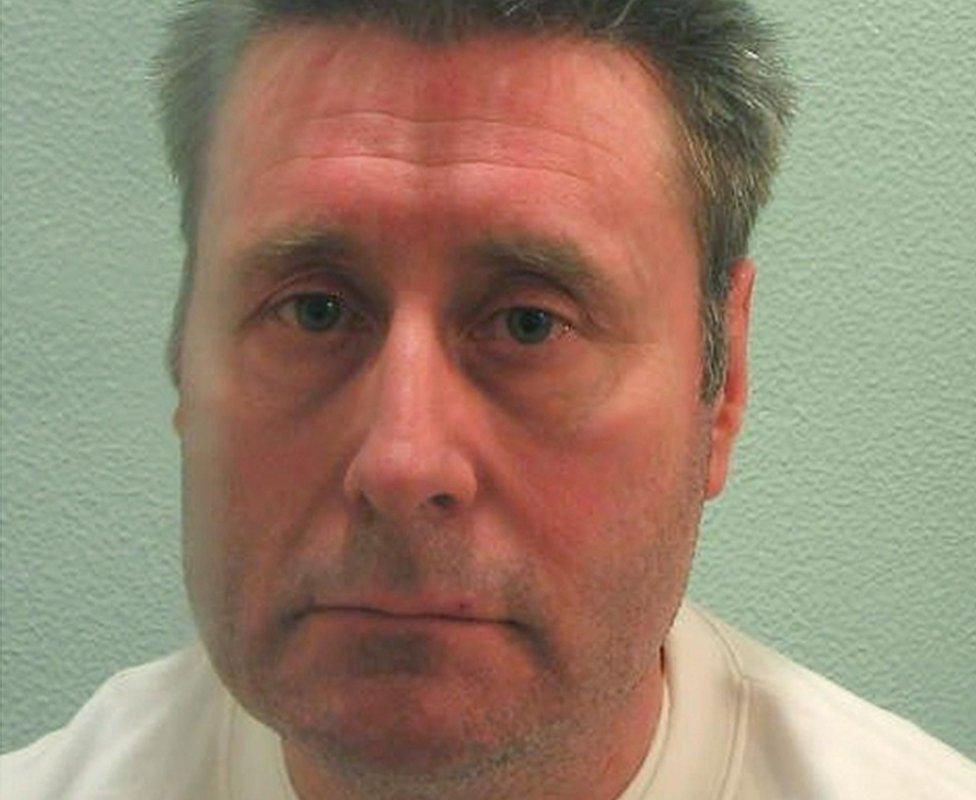
Worboys gave his victims drug-laced champagne before he attacked them
Until the two-day judicial review hearing, very little was known about John Worboys' 10 years' in custody - and the reasons why the Parole Board granted his release.
From legal submissions at the High Court hearing, and documents presented to the court, a picture has built up of a man who was in denial about his offending for most of his sentence.
How did he react in prison?
Worboys pleaded not guilty at his trial in 2009, brought a legal challenge against his convictions a year later, and, after being refused permission to bring the appeal, applied to the Criminal Cases Review Commission to consider his case.
Even four years later when he settled civil claims brought by 11 of his victims, paying £241,000 compensation, he did not accept liability.
According to legal papers from the Mayor of London, a forensic psychologist reported in June 2013 that Worboys had not engaged in any programmes focused on his offending.
A separate psychologist, in January 2015, wrote that Worboys maintained that sexual contact with the 12 victims in the cases he was convicted of was consensual.
But just four months later there was a dramatic change: Worboys admitted the offences.
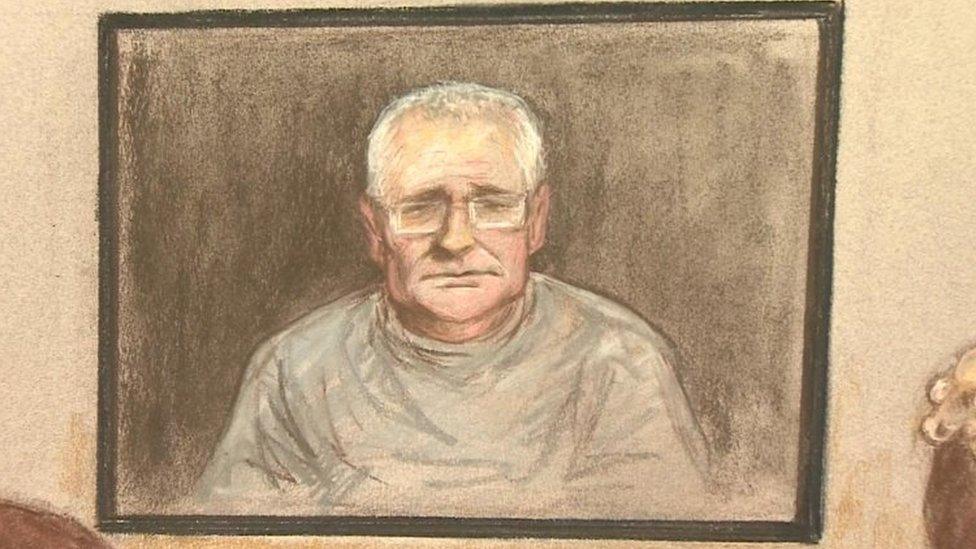
Worboys appeared via videolink at the High Court hearing
Why did he change his mind about his crimes?
Worboys' offender supervisor, a member of prison staff, wrote that the former black cab driver had said he felt "ashamed" of his behaviour after reflecting on media coverage about Jimmy Savile, and "needed to show victim empathy".
A forensic psychologist who interviewed him in June 2015 said he was "nervous" and "tearful" and wanted to give victims "their due" and "say thank you" by taking responsibility.
"He also said he had maintained hope that his convictions would be overturned, and that this expectation now felt unrealistic, which was a further motivation to take responsibility for his sexual offending," the psychologist wrote.
Indeed, Worboys had withdrawn his CCRC application in May that year, at the same time as his admission of responsibility.
His apparent sudden about-turn came nine months before his eight-year minimum term was due to expire and four months before his first parole hearing, in September 2015.
Phillippa Kaufmann QC, who represented two of Worboys' victims at the judicial review hearing, suggested this was no coincidence.
The Parole Board decided the 60-year-old should remain in a 'closed' prison because of the level of risk he posed. In fact, he's been held in Category A, high-security, prison accommodation for his entire sentence.
What treatment did he receive?
In 2015, on the psychologist's advice, Worboys - who has changed his name to John Radford - began a sex offender treatment programme.
In 2017, however, the effectiveness of it was called into question by research showing they do not reduce the likelihood of reoffending and may in fact increase it slightly.
The Ministry of Justice scrapped the schemes, yet according to Ms Kaufmann that point was missed by the parole panel at his second, successful, parole hearing.
Ahead of that hearing, in November last year, there appeared to be a consensus Worboys had not made enough progress in custody to warrant release, let alone a move to an 'open' prison, where inmates spend time in the community to help them adjust to life on the outside and test whether they're ready for such a move.
Worboys' probation officer, known as an offender manager, said he was at the "start of his treatment pathway" which needed to be "full and thorough given the seriousness and proliferation of his offending".
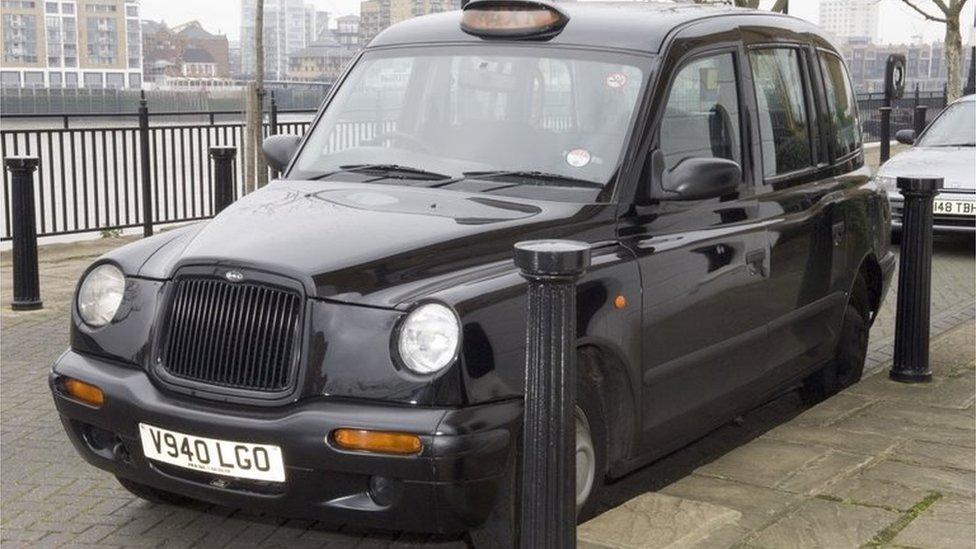
The former black cab driver has admitted attacking the 12 women he was convicted of, but he continues to protest his innocence of more than 80 other allegations, which police date back to 2002
So how was the decision made to release him?
The High Court was told that in an interview in March that year, Worboys had described his victims as "happy drunks...not nasty" saying that by consuming alcohol they had "no respect for themselves". The offender supervisor agreed that he was not ready to be let out, as did a psychologist, commissioned by the prison authorities, who suggested only a review of Worboys' security category.
But by the time of the parole hearing, last November, there was a sharp divergence of views.
The psychologist, who'd been instructed by Worboys on a previous occasion, said they felt Worboys could now be "safely managed" in the community as he presented a "low risk" of sexual reoffending. Crucially, two other psychologists, who both gave evidence on Worboys' behalf, came to the same conclusion.
Ranged against them were four prison and probation staff, consisting of two offender managers and a senior prison psychologist, who all said Worboys had to move gradually to lower security jails before release.
The case had also been discussed at meetings of MAPPA (Multi-agency Public Protection Arrangements), a group of police, probation and prison staff responsible for managing violent and dangerous offenders. MAPPA believed Worboys still posed a high risk of harm and should not be released.
The parole panel, which the Parole Board said was chaired by an "experienced" female member and included a psychologist and a lawyer, also heard evidence from prison officers and Worboys himself - the Board said he was "questioned in detail".
The Justice Secretary, who opposed release, was represented and one victim submitted a statement.
The Panel, which had a 363-pages long dossier of information about Worboys, reached its decision, puzzlingly, on Boxing Day last year, though it wasn't made public until January.
It concluded it was no longer necessary for Worboys to be held in prison because he'd taken "full responsibility" for his offending, learnt to be "open and honest", had a "good insight" into his risk factors and posed a "low risk of future sexual offending".
The Panel said the risks he posed were not "imminent" and were "manageable" in the community, adding that an increase in risk was not "inevitable" and would be detected.

- Published26 January 2018
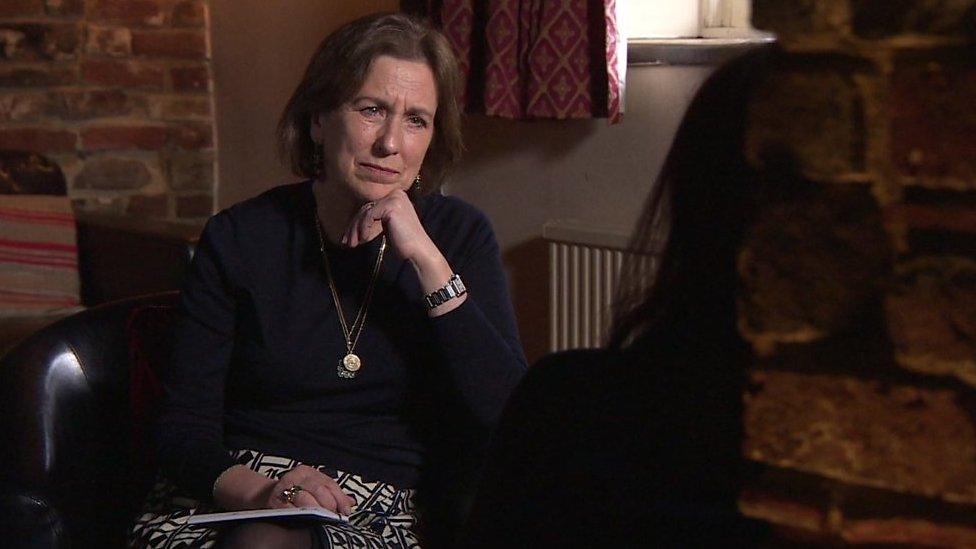
- Published19 January 2018
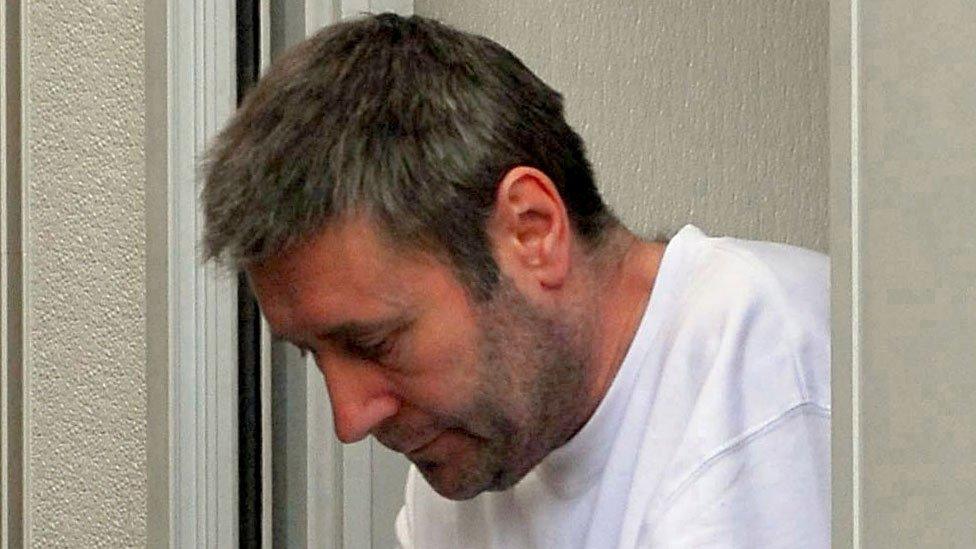
- Published6 January 2018
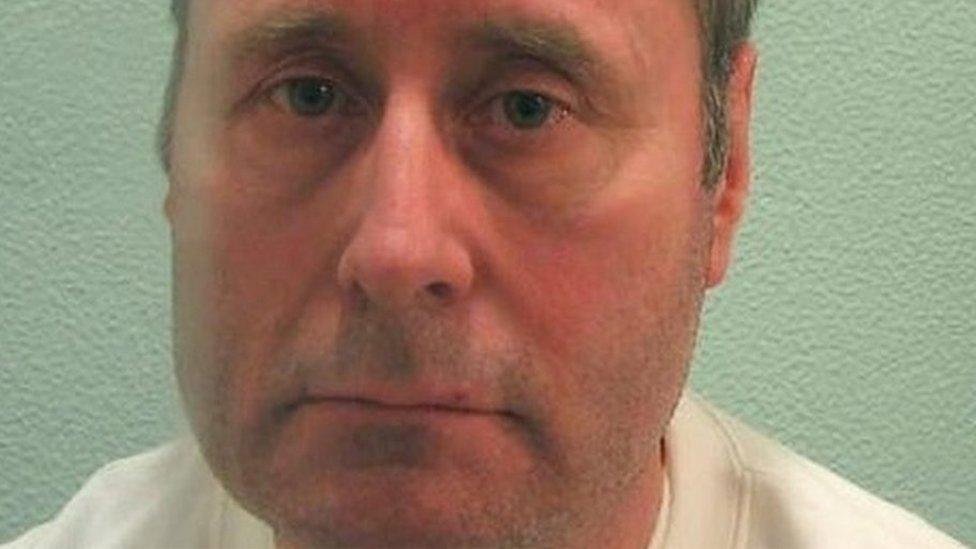
- Published23 July 2014
